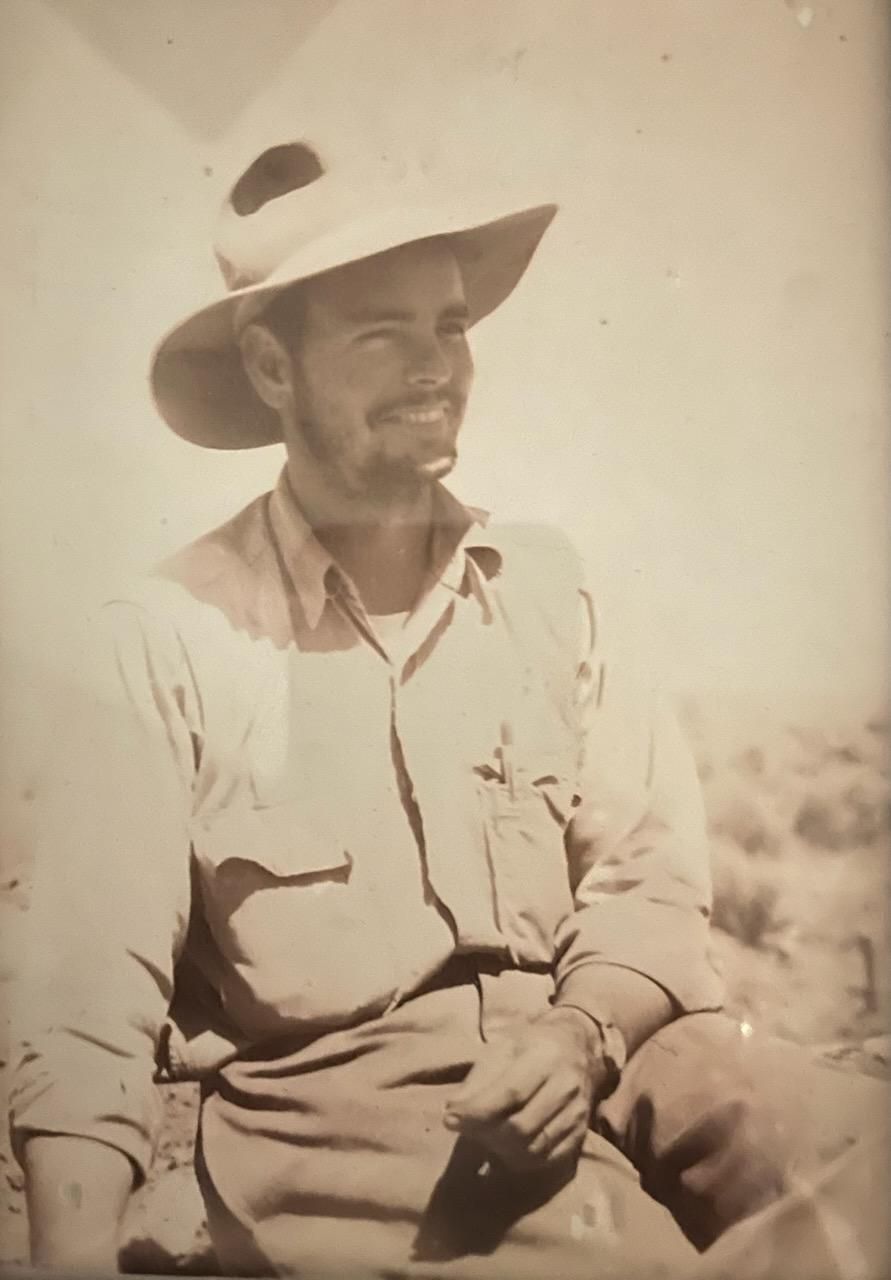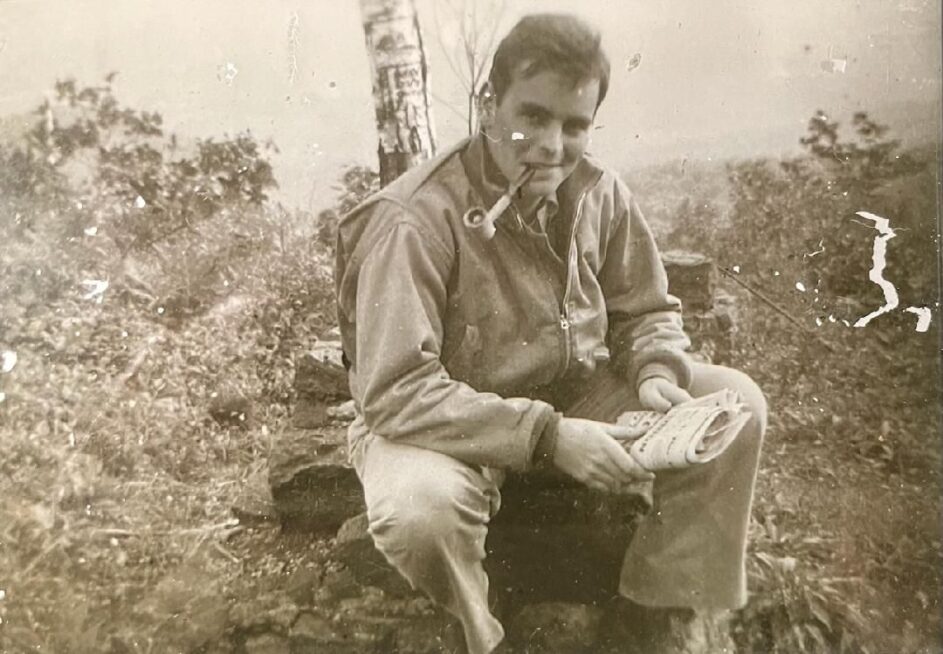As a student at the University of Tennessee, I frequently dropped by the McClung Museum. Little did I know that years later I would be friends with the director’s son, Phil Guthe. Phil has many memories of his father, and on Sunday husband Dan and I sat down with Phil and his sister Janet Guthe Colbert to learn more about their father’s extraordinary life.
Dr. Alfred Kidder Guthe, aka Ted, was in graduate school at the University of Chicago when World War II broke out. He enlisted in the Navy and spent over a year in training to become a Naval Gunfire Liaison Officer.

Ted Guthe
His job was to go ashore with the Army Amphibious Forces and secretly observe the enemy. The team would then radio back to the naval ships the enemy’s coordinates for accurate missile launching purposes. Observing the enemy meant that Ted was always in a forward position and was with Gen. George S. Patton at the beaches in Gala, Sicily; there for the invasion of Salerno, Italy; and there on the beaches at Normandy on D-Day. After participating in three invasions, Ted was sent home on leave. There he married a fellow University of Michigan student, Lois Kuhlman.
Ted was then sent to the Pacific, a place from which he felt sure he would never return. Fortunately, he survived that tour of duty and later in life, when his children asked if he had ever been wounded in combat, he would laugh and say he broke a fingernail when dodging German machine gun fire by jumping in a ditch. It was a funny, deflecting answer that masked his true experiences. For the rest of his life, he exhibited PTSD symptoms, a condition which at that time was undiagnosed and misunderstood.
Ted returned home, finished his studies, and in 1946 had a child. That baby was followed by another in 1948, 1950, 1954 and 1956. At that point Mrs. Guthe said enough and entered a research study designed to prevent pregnancy. As the family says, “That study is why we have Don, born in 1961. Ted’s family was large and his $7,500 salary as the curator of the Museum of Arts and Sciences in Rochester, New York, barely made ends meet. Ted now had a doctorate in anthropology and was searching for a job.
Meanwhile, Dr. Guthe’s parents, Carl and Grace Guthe had retired, bought an Airstream camper and were touring the states with a goal to visit all the museums the states had to offer. Anthropology was in the family, you see. Ted’s father was a respected, renowned member of the field.
Eventually the couple came to Knoxville to visit an under-construction McClung Museum. During a tour of the facility, they were told that the museum was in dire need of direction; an expert who could bring vision to the structure. Carl, upon learning that the salary was over double what son Ted was making, immediately recommended his son.
Ted was hired as the director of the museum and as the head of the Anthropology Department, and the family moved to Knoxville in 1961. Ted remained the museum’s director until 1978 when he returned to full-time teaching. Daughter Janet once attended one of her father’s classes and was amazed at the density of facts, facts that seemed unconnected until the end of the lecture when her father tied them all together. Janet said that during the lecture you could hear a pin drop. He was an extraordinary and well-liked teacher.
As an archeologist, Dr. Guthe was frequently away on archeology digs. Once daughter Janet accompanied him to a colonial tavern dig in New York state where she found a mastodon tooth. Everyone was excited but when told she couldn’t keep the bone, Janet was disappointed.
Ted was extremely interested in indigenous Americans and upon moving to Knoxville gained knowledge of the Cherokee tribe. Son Phil says that his father had the utmost respect for the discovered artifacts, treating them with the dignity and care they deserved. Ted’s accomplishments in this field are renowned.
Ted developed cancer and died when he was 63. Phil asked his father why he thought he had cancer and he said, with his wonderful laugh, “You know, the only thing I can figure is that I got cancer from a grain of sand from the beaches of Normandy, or I was bitten by tsetse flies in Brazil.”
Ted’s story is one of gifted intelligence, a life that included a continuous battle with PTSD; a life filled with a wonderful wife who, according to her children, kept Ted and the whole family afloat, a life that shed light on the world and those around him. It only takes a glance at McClung Museum’s website to understand just one of Dr. Guthe’s many contributions.
You did well troubled, brilliant warrior. Rest in peace.
Cindy Arp, teacher/librarian, retired from Knox County Schools. She and husband Dan live in Heiskell.

